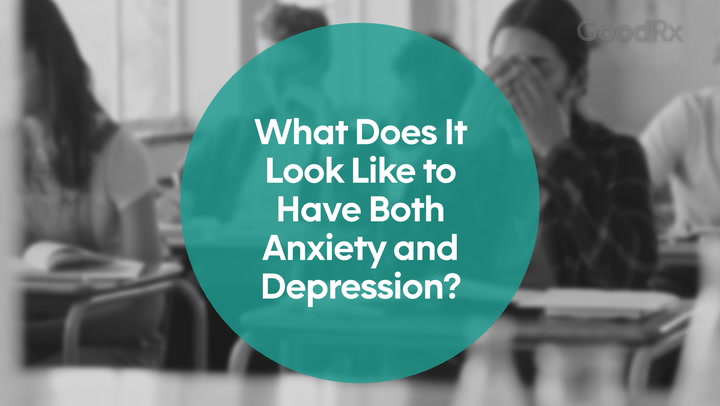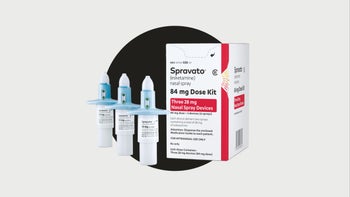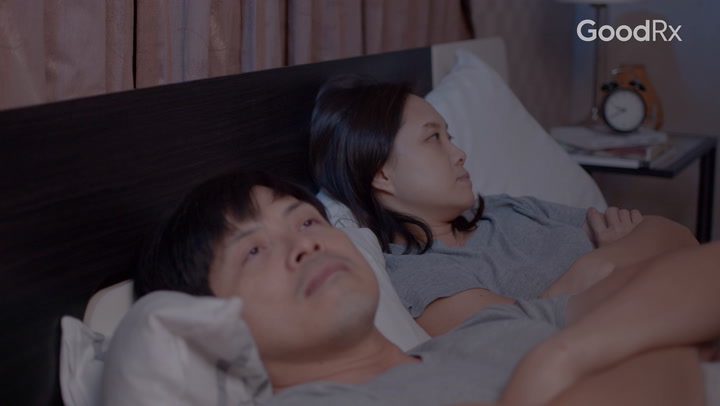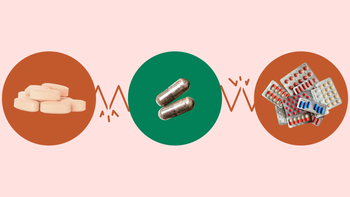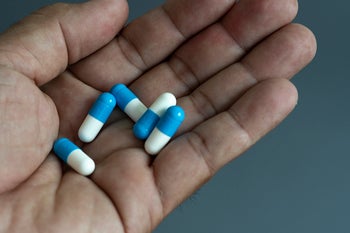
What Are Your Options If You Have Treatment-Resistant Depression?
Key takeaways:
If you still feel depressed after trying antidepressants, you may have something called treatment-resistant depression.
Though the name may sound discouraging, treatment-resistant depression is treatable.
There are many therapies that can help with treatment-resistant depression. These include medications and nonmedication options.

Have you been told that you have treatment-resistant depression? This is a term used by some healthcare professionals that can be confusing and disheartening. You may think it means that you have depression that won’t get any better. But that’s not the case at all. It just means it’s time to try something else. And you actually have many different treatment options that can help this kind of depression.
What is treatment-resistant depression?
Treatment-resistant depression refers to symptoms of depression that are ongoing even with treatment. These treatments are usually antidepressant medications.
But the term “treatment-resistant depression” isn’t very useful for people with depression or even for healthcare professionals. That’s because experts don’t agree on the exact definition. Some say it’s depression that persists after a period of taking just one medication. Others say it should be diagnosed after two or three failed medication trials.
Search and compare options
Also, people can feel like the term means that their depression will never get better. They may start to lose hope after trying medications that weren’t too helpful for them. In reality, many people don’t feel much better after their first or second antidepressant.
Depression can be hard to treat, for many reasons:
Everyone has a unique brain that doesn’t react the same way to medication. Certain medications can be really helpful for one person and not for another, and no one knows why.
Medication can cause side effects that can make a person feel bad, like weight gain or sexual side effects. These can happen even if the medication is helping the original depression. So this can make it hard to know if the medication is helping.
There are many factors in life that affect people’s moods. Medication doesn’t address social problems or lifestyle factors that can worsen depression.
But treatment-resistant depression can improve with ongoing treatment. Theresa Toledo, MD, is a psychiatrist in southeast Michigan who works with mood disorders including depression. She said that “treatment-resistant does not imply that depression cannot get better.”
You and your healthcare team may want to look at different options for treatment. This can start with a change in medications.
Quiz: Is your antidepressant working?
What medications can help treatment-resistant depression?
Several kinds of medications can be useful for treatment-resistant depression. Switching to a different antidepressant can be helpful. And other types of medications can enhance the effects of an antidepressant. It’s common to use a combination of medications for treatment-resistant depression.
Treating depression with psilocybin: Psychedelic substances like magic mushrooms are emerging as a new treatment for depression. Learn more about how it works.
Does magnesium help with anxiety? There’s some research to suggest magnesium supplements can help with anxiety, depression, and trouble sleeping.
IV ketamine vs. Spravato: If you have hard-to-treat depression, ketamine may help. But it’s important to understand the main differences in these two forms.
Antidepressants
The most common medications used for depression are selective serotonin reuptake inhibitors (SSRIs). And even though they are called antidepressants, SSRIs are also prescribed for anxiety. There are several different SSRIs, and one of them may work better for you than another.
Common SSRIs include:
Citalopram (Celexa)
Escitalopram (Lexapro)
Fluoxetine (Prozac)
Paroxetine (Paxil)
Sertraline (Zoloft)
Serotonin and norepinephrine reuptake inhibitors (SNRIs) are another kind of antidepressant. Like SSRIs, SNRIs affect serotonin in the brain, which helps to regulate mood. But they also affect norepinephrine. Because of this, SNRIs can be helpful for chronic pain and anxiety, too.
Common SNRIs include:
Desvenlafaxine (Pristiq)
Duloxetine (Cymbalta)
Levomilnacipran (Fetzima)
Venlafaxine (Effexor XR)
There are other kinds of antidepressants that work on slightly different brain chemicals:
Vortioxetine (Trintellix) and vilazodone (Viibryd) are similar to SSRIs. But they also affect different serotonin brain receptors.
Mirtazapine (Remeron) is an antidepressant that also affects histamine. This can be helpful for sleep.
Bupropion (Wellbutrin SR, Wellbutrin XL) affects norepinephrine and dopamine. It can sometimes double as a treatment for ADHD (attention-deficit hyperactivity disorder).
Auvelity is a newer antidepressant that’s a combination of two medications — dextromethorphan and bupropion. Dextromethorphan affects a specific receptor in the brain called the NMDA receptor.
Antipsychotics
Adding antipsychotic medications to antidepressants can also be helpful for treatment-resistant depression. These are usually used to treat conditions such as bipolar disorder and schizophrenia. But lower doses of these medications can be helpful in depression.
The FDA has approved these antipsychotics as medications for depression:
Aripiprazole (Abilify)
Brexpiprazole (Rexulti)
Cariprazine (Vraylar)
Olanzapine (Zyprexa)
Quetiapine (Seroquel)
Symbyax (Olanzapine/fluoxetine)
Other medications for treatment-resistant depression
There are other kinds of medications — beyond antidepressants and antipsychotics — that have also been shown to be helpful for treatment-resistant depression.
Spravato (esketamine) is a newer medication that’s FDA approved for treatment-resistant depression. It’s a form of ketamine, which is an IV medication that’s sometimes used as a type of anesthesia. The IV form of ketamine is also used for off-label treatment for treatment-resistant depression. But Spravato is a nasal spray that you can receive in a healthcare office. This is so your healthcare team can watch for potential side effects for a couple of hours after each dose.
There are other medications that are sometimes used in addition to more common depression treatments. But it’s important to note that they aren’t officially FDA approved for depression. Because of this, they are only used in specific circumstances and with the guidance of an experienced healthcare professional:
Lithium is usually used for stabilizing mood in bipolar disorder. It can improve mood in treatment-resistant depression, too. But blood levels need to be checked during treatment to prevent possible lithium toxicity.
Thyroid hormone (levothyroxine) can also be added to antidepressants. Your prescriber will want to track your thyroid function while you’re taking this hormone.
Llisdexamfetamine (Vyvanse) is a stimulant medication usually used for ADHD. It has also been shown to be helpful as an add-on for depression.
Buspirone (Buspar) is a medication that can sometimes be used to treat anxiety.
What are other treatment options for treatment-resistant depression?
Treatments other than medications have proved helpful for treatment-resistant depression.
Psychotherapy
Studies show that psychotherapy is helpful for treatment-resistant depression. The most helpful kinds of therapy for treatment-resistant depression are:
Cognitive behavioral therapy (CBT): This well-known therapy helps you understand how you think, behave, and feel. CBT helps you recognize and make changes to thinking patterns that contribute to depression.
Interpersonal therapy: This kind of therapy focuses on making relationships better.
Mindfulness-based cognitive therapy: Learning how to be present in the moment is a helpful way to understand and ease symptoms of depression and anxiety.
Talking to a therapist is often an important part of treating depression. Therapy can help you change your mindset and the ways you go about your life. It can help you think about things differently. You may have tried therapy and felt it was not helpful. But try not to get discouraged. It may just mean you need to keep looking until you find a therapist who is the right fit for you.
ECT
Electroconvulsive therapy (ECT) is a depression treatment that uses controlled seizures. This may sound scary, but it can actually be quite effective. In fact, ECT has been named the “gold standard” for treating treatment-resistant depression.
First, the person receives anesthetic medication so that they are relaxed and not aware of the seizure. Then a healthcare professional uses an electrical charge to the scalp to start a brief seizure. Since the person is asleep, this isn’t painful. The treatment is repeated over a period of several weeks or months. It’s an outpatient procedure and considered to be safer than surgery.
TMS
Transcranial magnetic stimulation (TMS) is another procedure that can help treatment-resistant depression. A magnetic coil is placed on the scalp in a medical office. An electrical current is passed through a part of the brain. Like ECT, this is not painful. This procedure is also repeated over the course of several weeks.
VNS
Vagal nerve stimulation (VNS) uses an electrical stimulator in the body to activate the vagus nerve. The vagus nerve is a large nerve in the body that’s important in the parasympathetic nervous system. This is the part of the nervous system that helps the body rest and relax.
This treatment requires a small procedure. A surgeon implants the stimulator in the neck, where the nerve is located. It treats both treatment-resistant depression and epilepsy.
Self-care tips for treatment-resistant depression
Depression has a way of making people neglect themselves. When you take time to do things you used to enjoy, even if you don’t want to at the moment, it can help your mood. Also, taking care of yourself is part of the bigger picture in your depression treatment.
“I always emphasize there are three important things we do for mental health treatment,” Toledo said. Those are:
Medication
Psychotherapy
Overall health and habits, including sleep, diet, and exercise
Exercise
Studies show that exercise can be helpful for treatment-resistant depression. Many people with depression have a hard time getting motivated to exercise. But research shows that exercise helps people with depression who are already taking an antidepressant. And every little bit helps. This can be as simple as moving and stretching your body more in your daily routines.
Eating well
Depression can feel worse when you feel physically down, too. Changing your diet and drinking enough water may help you feel better. Foods with fiber, protein, and complex carbohydrates will help to maintain your metabolism.
Research on the gut-brain connection is becoming more common. This term describes how the nerves of the stomach and intestines are related to the brain. Keeping the gut healthy could help your mental health.
Socializing
People with depression are more likely to isolate themselves from others and experience loneliness. But research shows that increased social interaction can help with mood and loneliness. It may be difficult to be social, but spending time with loved ones — or even people you don’t know very well — can help lift you up.
Relationships
Look at your relationships to see if you are stuck in an unhealthy rut. Sometimes, people don’t realize how much their relationships affect their mood. These unhealthy relationships can be with partners, family, friends, or colleagues. Therapy is a good setting to work through your feelings about relationships.
Regular healthcare visits
Don’t neglect your physical health when focused on treating your depression. Toledo also noted that it’s important to get a checkup with your primary care provider. “Maintaining overall health is important,” she said. “Your primary care provider can rule out conditions that can make depression worse. Examples are anemia, diabetes, and thyroid disease.”
The bottom line
Treatment-resistant depression doesn’t mean that your depression is untreatable. Trying different medications or combinations is an option. Depression can improve with therapy, exercise, and other lifestyle strategies. If you’ve heard the term “treatment resistant” describe your depression, don’t give up hope on feeling better. Many times, it’s just a matter of finding the right treatment formula that works best for you.
Why trust our experts?



References
de Sousa, R. T., et al. (2015). Challenging treatment-resistant major depressive disorder: A roadmap for improved therapeutics. Current Neuropharmacology.
Gaynes, B. N., et al. (2020). Defining treatment-resistant depression. Depression and Anxiety.
Gelenberg, A. J., et al. (2010). Practice guidelines for the treatment of patients with major depressive disorder. American Psychiatric Association.
Gutierrez, G., et al. (2024). IV low dose ketamine infusions for treatment resistant depression: Results from a five-year study at a free public clinic in an academic hospital. Psychiatry Research.
Kuczynski, A. M., et al. (2021). The effect of social interaction quantity and quality on depressed mood and loneliness: A daily diary study. Journal of Social and Personal Relationships.
Mura, G., et al. (2014). Exercise as an add-on strategy for the treatment of major depressive disorder: A systematic review. CNS Spectrums.
Nuñez, N. A., et al. (2022). Augmentation strategies for treatment resistant major depression: A systematic review and network meta-analysis. Journal of Affective Disorders.
Psychology Today. (n.d.). Transcranial magnetic stimulation therapy.
Voineskos, D., et al. (2020). Management of treatment-resistant depression: Challenges and strategies. Neuropsychiatric Disease and Treatment.
For additional resources or to connect with mental health services in your area, call SAMHSA’s National Helpline at 1-800-662-4357. For immediate assistance, call the National Suicide Prevention Lifeline at 988, or text HOME to 741-741 to reach the Crisis Text Line.











